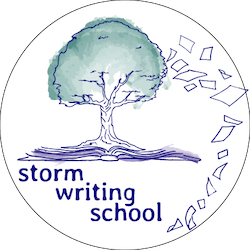100 Books Published in 2023 for Your TBR Pile

A mega list of books published in 2023, compiled in a table with info about genre, book description, and the person and tense of the narration.
Verisimilitude: What it is and how it works

Verisimilitude all about getting the reader to suspend disbelief and see realistic depictions of character, setting, and events. But what does it mean for such story elements to be realistic?
Prepping for Beta Reading

Once you’ve found a beta reader for your work, how should you proceed? Some tips here on how to prepare your expectations, your manuscript, and your reader.
Show, Don’t Tell Disambiguation

What’s at the root of the “Show, Don’t Tell” concept, what does showing look like, and how might people abuse showing? An exploration of this oft-cited piece of writing advice.
Delight: The Secondary Source of Reader Engagement

Though tension is maybe the main source or reader engagement, there are several sources of “delight” that help charm the reader and make books memorable.
Varieties of Omniscience

Using an omniscient narrator? It may help to be aware of these two dimensions, which account for the varieties of omniscient approaches.
A Glossary of Assorted Writing Craft Terms

I’ve put together a series on YouTube that attempts to define, clarify, or otherwise demystify various writing craft terms. Here, I’ve listed the terms I’ve already examined, and I’ll post additions as more videos are published.
Why Most Writing Rules Can Be Broken

Almost every writing “rule” can be broken. I offer three meta-principles for why that is and some thoughts on how we should approach the rules if they can be broken.
Tools for Big Picture Editing of Your Novel

The mountain of editing/revision can be daunting, particularly for long-form stories. Here are four tools you can use to gain perspective of the big picture.
Dramatic Prognosis: a tool for designing strong plots and improving weak ones

The dramatic prognosis is the calculation the audience makes about the hero’s chances of reaching the goal. You can examine the dramatic prognosis within your story in the planning stage or in the revision stage; it may be helpful in highlighting where the story is lacking.
